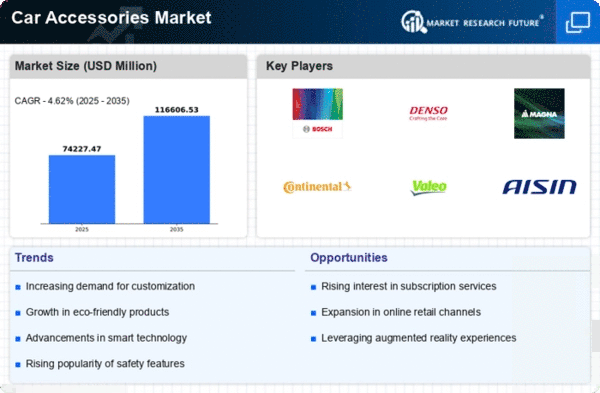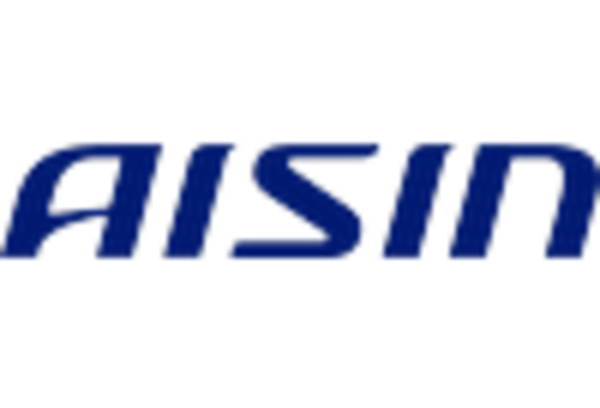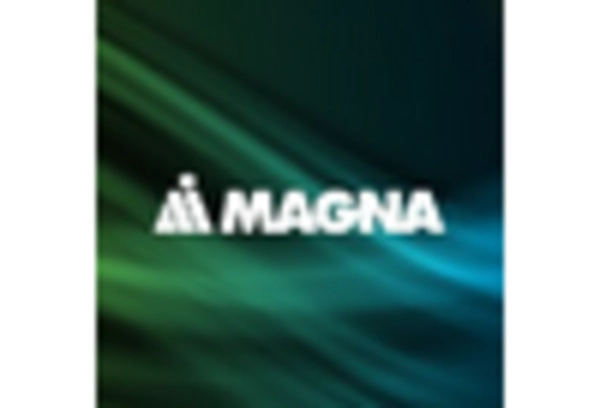Market Trends
Key Emerging Trends in the Car Accessories Market
The car accessories market is influenced by various market factors that shape its dynamics and growth trajectory. One significant factor is consumer preferences and trends. As consumer tastes evolve, so do the demands for car accessories. For instance, there's been a noticeable shift towards more technologically advanced accessories such as Bluetooth-enabled stereo systems, GPS navigation units, and wireless charging pads. Moreover, there's a growing interest in eco-friendly accessories like reusable car air fresheners and biodegradable car cleaning products, driven by increasing environmental awareness among consumers.
Another crucial market factor is the automotive industry's performance and innovation. Advances in automobile technology often drive the demand for complementary accessories. For example, the rising popularity of electric vehicles has led to a surge in demand for accessories like portable electric car chargers and specialized EV mats. Similarly, the trend towards autonomous driving features has boosted the demand for accessories like dash cams and parking sensors.
Furthermore, economic conditions play a significant role in shaping the car accessories market. During periods of economic prosperity, consumers tend to have more disposable income, leading to higher spending on discretionary items like car accessories. Conversely, during economic downturns, consumers may prioritize essential expenditures over accessory purchases, leading to a temporary slowdown in the market. Additionally, fluctuations in fuel prices and interest rates can impact consumer behavior and influence purchasing decisions related to both vehicles and accessories.
Supply chain factors also affect the car accessories market. The availability of raw materials, manufacturing capabilities, and distribution networks all play crucial roles in determining product availability and pricing. Disruptions in the supply chain, such as natural disasters or geopolitical tensions, can lead to shortages and price fluctuations in the market. Moreover, shifts in manufacturing processes, such as the adoption of automation or changes in sourcing strategies, can impact production costs and ultimately influence prices for consumers.
Regulatory factors also exert influence on the car accessories market. Regulations related to vehicle safety, emissions standards, and product labeling can impact the types of accessories available in the market and the requirements for their sale. For example, regulations mandating the use of hands-free devices while driving have spurred demand for Bluetooth-enabled accessories, while emissions standards have influenced the development of eco-friendly car care products.
Lastly, competitive dynamics within the market play a crucial role in shaping its landscape. The presence of both traditional brick-and-mortar retailers and online platforms provides consumers with a wide range of purchasing options and price points. Additionally, the presence of established brands alongside smaller, niche players fosters innovation and diversity within the market. Competitive pricing strategies, product differentiation, and marketing efforts all contribute to the overall competitiveness of the car accessories market.
In conclusion, the car accessories market is influenced by a myriad of factors, including consumer preferences, industry innovation, economic conditions, supply chain dynamics, regulatory requirements, and competitive forces. Understanding these market factors is essential for businesses operating in the car accessories sector to anticipate trends, adapt to changing conditions, and capitalize on emerging opportunities.


















Leave a Comment